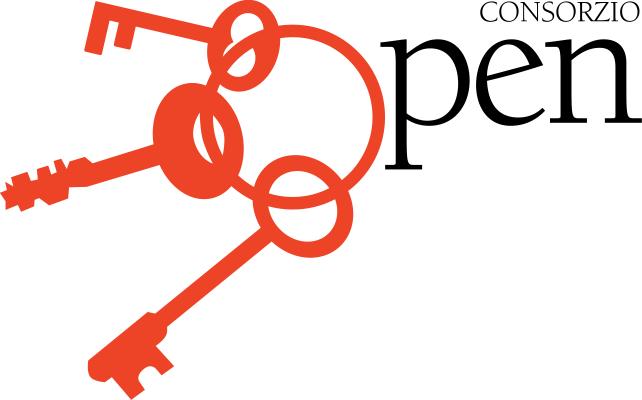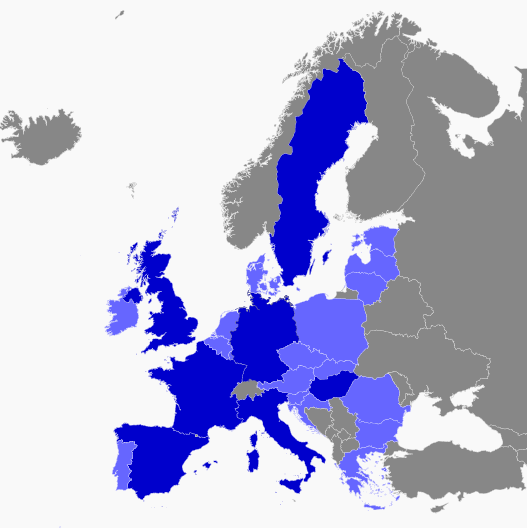Folkuniversitetet is an adult educational association that offers a wide range of adult education all over Sweden. It is an association of five foundations: the university extensions attached to the Universities of Stockholm, Uppsala, Göteborg, Lund and UmeÄ.
We have a broad open educational program in a variety of subjects; we also run upper secondary schools, schools in higher vocational education, courses for seniors and training, labour market education and further education and training for working life.
Folkuniversitetet is independent of all political, religious and commercial interests.
Values
International cooperation, pedagogic development, democracy and focus on the individual are central values for us.
We have given important contributions to development of Swedish education and training, for example evening gymnasiums, language centres, Swedish for immigrants, college and ICT-based education.
Visions and ideas for better learning methods are developed and tested in project groups, often in international cooperation. Coaching, mentorship, validation, entrepreneurship, learning in working life, empowerment and active guidance based on individual needs are examples of areas we are developing, and implementing to our own organisation.
Folkuniversitetet is engaged in adult education in Sweden. Our idea is that through knowledge and creativity give people opportunities for a richer life.
Knowledge changes! We believe that knowledge is a value in itself, for the individual and for society in general. Folkuniversitetet is an educational association that will be a natural meeting point for people's free search for knowledge - learning, cultural experiences and the opportunity for reflection.
Open to all! We believe that i many different pathways to lifelong learning are needed to benefit all people. The popular education idea â everyone's lifelong right to freely search for knowledge â permeate our education, our organization and our values.
Folkuniversitetetâs starting point is that each person has needs for knowledge and our wide range of courses are available to all. When we plan and execute our activities we always start from the needs of the individual.
Size and Scope of Activity
Folkuniversitetet consists of five legally independent trusts, regional offices, with local branches throughout Sweden. The national office is located in Stockholm. Every year, we welcome over 140,000 students to a variety of lectures, short courses or full-time study programs with a duration ranging from six months to two years.
Financing
Folkuniversitetet receives a certain degree of public financial support, but most activities are financed by course fees from private individuals, businesses and funding from the public sector. Our annual turnover is approximately EUR 120 million.
Staff
We employ around 400 teachers on a full-time basis and a further 6,000 part-time. An administrative staff of some 500 people takes care of administration and development
History
Folkuniversitetet first emerged as a national organisation in 1942, but its origins can be traced back to 1917 and the creation of an association for the development of a peopleâs university. By the 1930s, university students and teachers were organising evening courses and lectures for people lacking formal qualifications.
In 1947, Folkuniversitetet was established as a state supported organization within adult education, an open university in the true sense of the word.
During the 1950-1960s we rapidly developed as the main supplier in Sweden of foreign language courses and Swedish for immigrants.
In the 1970s and 1980s Folkuniversitetet became a leading actor in lifelong learning.
Adress
Skomakargatan 8
22002 Lund, Sweden
West London Equality Centre, WLEC, (the operational name of Ealing Equality Council) is a Human Rights organisation. Its mission statement is "Advancing equality and rights for all". For over 30 years it has been running the Community Advice Programme (CAP), a legal clinic providing free legal assistance to members of the public. WLEC are specialists in matters related to several areas of law and the Equality Act 2010, delivering key legal services to the minority ethnic, refugee and migrant communities in West London.
WLEC has Human Rights expertise at every level of the organisation from governance to frontline delivery and shaping local and subregional policy. This makes WLEC unique to West London. This is as a result of:
- WLECâs relationship for over 30 years with the University of West London [UWL], its law department, law tutors and law students, we have found ourselves operating at the forefront of the equality and human rights agenda. For several years WLEC has been strategically positioned as the leading Equality and Human Rights champion for this part of London.
- The Management Committee being composed of Human Rights specialists /academics/ practitioners â and volunteers drawn from the social sciences and legal disciplines, familiar with human right issues, both international and domestic.
- Trustees include a wide range of distinguished academics and experienced legal practitioners including Professor Kwame Akuffo, retired judge Bernard Andonian, Solicitor Barbara Karayi, and Barrister Josephine De Souza.
- WLEC staff and trustees have advised EHRC on human rights issues and advised Southall Black Sisters in their case against Ealing Council when the local authority threatened to decommission a separate domestic violence service for BMER women.
- Our Anti-Hate Crime work has included Hate Crime support services in Hounslow (funded by Hounslow Council) and West London (funded by London Mayors Office). The Hounslow service was cited as a model of good practice by the Deputy Mayor of London and lead on Hate Crime in the capital. We are also members of the pan-London MOPAC Hate Crime delivery group for thirty-two municipalities. With the support of the National Lottery Community Fund, we are in the second cycle of our hate crime tackling project providing multidimensional approach of victimsâ support, bringing perpetrators to justice, facilitating awareness campaigns, and increasing statutory and voluntary sector collaborative working to combat hate crime.
- Our previous international projects include SMART: Funded by the EU, a partnership with Ealing Council and Italian VCSE partners delivering a migrant assisted returns service, based on âouthouse/shedâ housing abuses and other issues uncovered by LBE, the Police and WLEC. Our organisation delivers help and advice to mainly vulnerable people in matters related to undocumented migrants, homeless families not entitled to public funds, trafficking, forced labour, immigration advice, etc, using Human Rights and other law to achieve better outcomes. The MILAR project aimed to integrate Refugees and Asylum seekers into society economically by way of employment, socially and through education. Working closely with multiple organisations, both from a national and international platform including Germany, Sweden and Italy; the project was based on researching and developing social community enterprise and most importantly the implementation of a successful pattern tested model. The West London Equality Centre carried out and conducted the United Kingdom aspect of the work. The project was aimed to evaluate and apply a âbottom-upâ approach specifically by empowering individuals, providing refugees and at least 24 asylum seekers with the skills, knowledge, and tools to enable their individual development, thus increasing community cohesion.
- In our generalist and specialist advice, (ongoing for over 30 years in Ealing), we provide advocacy and casework service, through highly motivated law graduates and undergraduates who have studied Human Rights as part of their legal training. In partnership with the Community Advice Programme, we service annually thousands of enquiries consisting of telephone advice, face-to-face triage for drop-in clients without phones, internet, etc, face-to-face appointment advice clinics, casework, referrals, and signposting.
- In addition to generalist advice WLECâs service covers Domestic Violence, Honour Crimes, Hate Crimes, Human Trafficking, Caste discrimination and other areas relating to equality.
The quality of our service is reflected in our high calibre pro bono volunteers, who have included: Queens Counsels, Judges, Magistrates, Solicitors, Barristers and local law students and our quality assured volunteering programmes.
Adress
84 Uxbridge Road
Ealing, London, W18 8RA
United Kingdom
Tel. +44 20 8231 2575
Stephansstift ZEB is an adult education center under the roof of Stephansstift Foundation which again is part of the umbrella organization Dachstiftung Diakonie with around 3500 employees.
Stephansstift foundation has a long history in social work and social inclusion. It has youth and family welfare activities, childrensâ daycare centres, special needs schools, an adult education centre with boarding home, vocational schools, and several residential and care homes for the elderly.
As part of the clerical and social welfare (Diakonie) Stephansstift ZEB (Centre for Adult Education) is a provider for general adult education and professional education for the social sector in Hannover, Germany. It follows the concept of Grundtvig as a âHeimvolkshochschuleâ, which implies the concept of informal learning and living under one and the same roof and thus bringing together different people. As residential school it employs around 50 people: pedagogues, administration, reception, kitchen and housekeeping staff.
Around 20.000 participants per year come to a big variety of non-formal courses or to continuing education and training, mainly in the field of guidance, social services/social work and Diakonie for people in need. A big number of participants are volunteers and multipliers as well as professional social workers and educators working with volunteers and disadvantaged persons for social integration and employability.
Stephansstift Foundation focusses on helping vulnerable groups, rehabilitation and integration into society.
Since 2015 Stephansstift ZEB (Centre for Adult Education) puts a focus on migration and refugees and offers German courses for refugees and also courses for volunteers and professionals that work with refugees and migrants with topics of how to teach German and intercultural competence.
Consorzio OPEN is an association of 8 Italian organisations working on a regional or national level. - CEFAL - Emilia Romagna Region - Techné - Emilia Romagna Region - Istituto Don Calabria in Veneto, Emilia Romagna and Sicily Region - Cooperativa sociale A&I (Accoglienza e Integrazione) in Lombardia Region - Fondazione Casa di Carità in Piemonte Region - Scuola Centrale di Formazione Emilia Romagna Region - Coss Marche, Marche Region - Escoop, Puglia Region
Consorzio OPEN has about 3200 actively involved contributors (employees, volunteers, etc.) working with about 34.000 beneficiaries per year. The consortium has 132 offices in 11 regions of Italy: Liguria, Piemonte, Lombardia, Veneto, Friuli, Venezia, Giulia, Emilia Romagna, Marche, Puglia, Basilicata, Sicilia, Sardegna.
Historically, Consorzio OPEN goes back to a project funded by the ESF in 2007. The cooperation of organisations promoting vocational training and working inclusion of young people and adults in situations of social, economic and cultural disadvantage developed into the desire to set up a continuing partnership based on shared goals.
Thus, in 2010, Consorzio OPEN was formed as a national network to combat social exclusion of people with disadvantage through activities and social rehabilitation services and training aimed at redefining a new life project. Beneficiaries are refugees, ex-convicts, ex drug-addicts, disabled, long-term unemployed, school drop-outs and many more. In recent years, working with refugees and immigrants has become a more important focus.
Consorzio OPENâs priority is to develop new systems and strategies to promote social inclusion and employment of people who have a serious social disadvantage and live in the margins.
To this end, OPEN promotes participation of people in training and employment support by promoting initiatives of comparison and debate, such as â inter-professional training for organizational well-being personnel â dialogue between institutions (companies, social economy, citizenship) â Involving local administration, national and European bodies to stimulate change in the policies and practices of public institutions.
Other Projects
The eight organsiations running the HYS project are also active in other Erasmus+ projects. Here we present a selection of them.
Page 2 of 3















